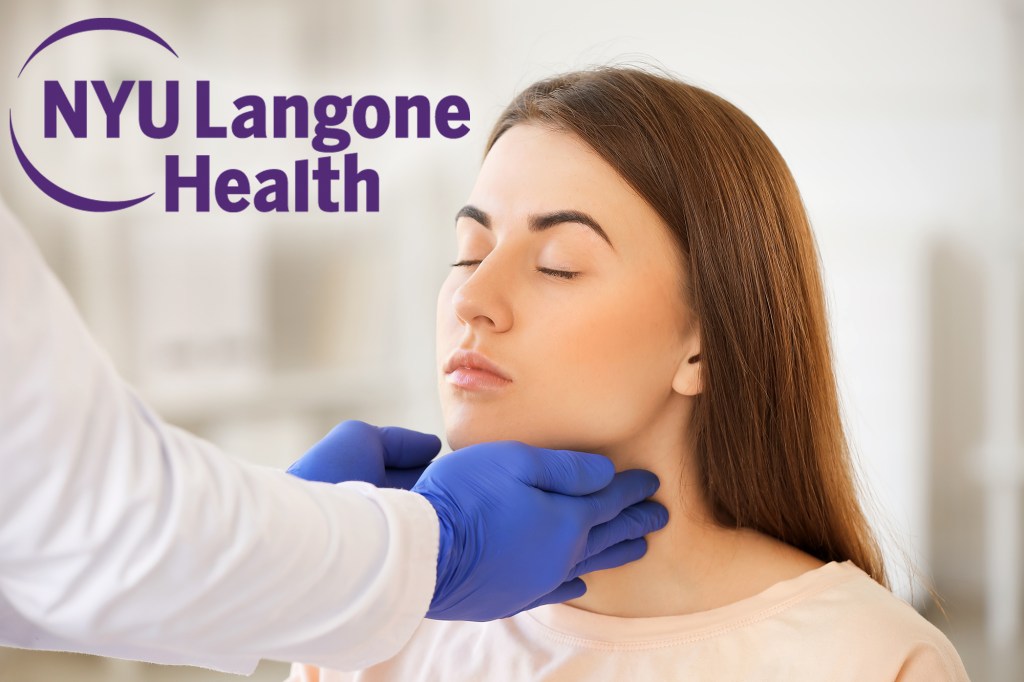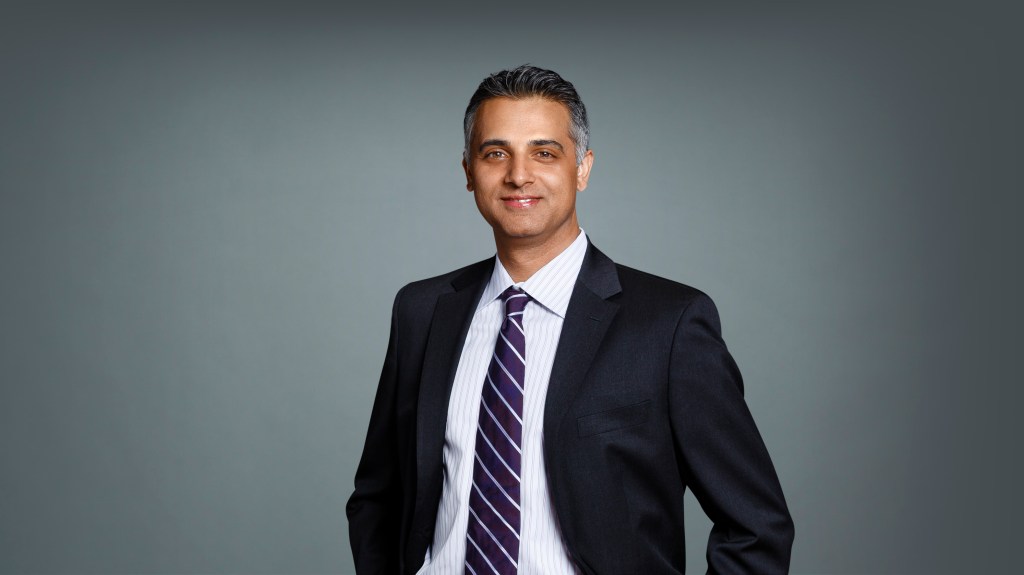More than 12% of Americans will develop a thyroid condition at some point, with women at greater risk than men.
The thyroid gland, a butterfly-shaped organ in the front of your neck, produces hormones that regulate metabolism, support growth and promote brain development, among other vital functions.
Dr. Kepal Patel, co-director of NYU Langone Health’s Thyroid Program and chief of the Division of Endocrine Surgery, gave us the lowdown on the thyroid, symptoms that may indicate thyroid dysfunction and common treatments.
What is the thyroid gland, and how does it work?
The thyroid gland is part of your endocrine system, producing hormones that regulate your metabolism, affecting how your body uses energy. These hormones influence nearly every organ, impacting heart rate, body temperature and digestion. When your thyroid isn’t working properly, it can impact your entire body.
What are the early warning signs and symptoms of thyroid disease?
There are several types of thyroid disease, each with distinct symptoms. Early warning signs include a slow or rapid heart rate, unexplained weight changes (gain or loss), sensitivity to cold or heat, depression or anxiety, persistent fatigue and irregular menstrual periods.
In hypothyroidism (an underactive thyroid), common symptoms include fatigue, weight gain and feeling cold. This can result from conditions such as Hashimoto’s disease, a chronic autoimmune disorder and the most prevalent cause in regions where iodized salt and other iodine-rich foods are widely available. Iodine deficiency can also lead to hypothyroidism, while congenital hypothyroidism refers to cases where babies are born with a missing or underactive thyroid.
On the other hand, hyperthyroidism (an overactive thyroid), can cause anxiety, weight loss, a racing heart and feeling unusually hot. It’s often linked to Graves’ disease, another autoimmune condition that overstimulates the thyroid. Thyroid nodules, which are abnormal lumps in the thyroid, and excessive iodine can lead the thyroid to produce more hormones than necessary.
Recognizing these symptoms early is key for effective management and treatment.

When should someone see a specialist for thyroid-related symptoms?
You should see a specialist, typically an endocrinologist, if you have persistent, unexplained symptoms that don’t improve with primary care treatment, or if you notice changes in the appearance of your neck.
If a family member has thyroid disease, inform your doctor, as thyroid conditions often run in families. Since thyroid symptoms can be subtle, diagnosis may sometimes be delayed. Consult your doctor if you feel noticeably different from usual. A simple blood test can check your thyroid hormone levels and help determine if your thyroid is the cause.
What do you tell patients who come in with a lump in their neck?
Lumps in the neck are fairly common and usually not life-threatening. The most common cause is swollen lymph nodes due to infections like colds or strep throat. Irritations such as allergies or post-nasal drip can also cause lymph nodes to swell. Other possible causes include thyroid nodules, cysts or non-cancerous tumors. Most benign lumps tend to go away on their own, but if a lump persists, it should be evaluated further. This may involve a neck ultrasound and if needed, a biopsy to determine the cause.
When should I be concerned about lumps or nodules in the neck?
Be concerned about lumps lasting over two weeks, especially if not linked to an infection. Warning signs include lumps that seem to grow, are firm or feel hard. These should be evaluated by a specialist, and a physical exam or thyroid ultrasound can help assess whether the lump requires further evaluation.

How is a diagnosis made?
To diagnose thyroid disease, nodules or cancer, we typically begin with a thorough medical history and physical exam. This may include feeling the thyroid area for any abnormalities. A blood test measuring thyroid-stimulating hormone levels is often the first step. If results come back abnormal or there are noticeable lumps or pain, imaging tests like a neck ultrasound may be ordered, a useful tool for evaluating and diagnosing thyroid nodules and most thyroid cancers. Our team also may use radioactive iodine scans, which can help distinguish between different types of nodules and thyroid function abnormalities.
If a lump or nodule appears suspicious, a biopsy may be necessary to check for cancerous or abnormal cells. This is done using a thin needle where a small sample of tissue is removed and examined. If thyroid cancer is suspected, a more detailed biopsy with molecular testing or advanced imaging techniques may be used. By combining these tests, we can accurately diagnose and recommend course of treatment.
How is thyroid disease treated?
Treatment depends on the specific condition and its underlying cause. Our goal is to return your thyroid hormone levels to a healthy range. For hyperthyroidism, options include medications that inhibit hormone production by the thyroid, radioiodine therapy to destroy thyroid cells and reduce hormone production or surgery to remove the thyroid gland. Those who undergo surgery or radioiodine therapy may need to take thyroid hormone replacement for life. Hypothyroidism is mainly treated with thyroid hormone replacement.
At NYU Langone’s Thyroid Program, we offer innovative, multidisciplinary care tailored to each patient’s needs to provide the best treatment at the optimal time. Thyroid disease is often lifelong, requiring consistent management. Though it may take some time to find the right treatment plan to regulate your hormone levels, most people with thyroid disease lead normal lives.
How can I keep my thyroid healthy?
Eat a balanced diet rich in fruits, vegetables, whole grains and adequate iodine. Regular exercise, stress management techniques like yoga and routine check-ups can help. Avoid smoking, limit alcohol and reduce exposure to harmful chemicals to support thyroid health.
Kepal N. Patel, MD, is chief of the Division of Endocrine Surgery and co-director of NYU Langone’s Thyroid Program. He is an internationally recognized endocrine surgeon and thyroid specialist, providing a full spectrum of care for the diagnosis and treatment of thyroid conditions. Dr. Patel is lead author of the first comprehensive guidelines for the surgical management of adult thyroid disease.














